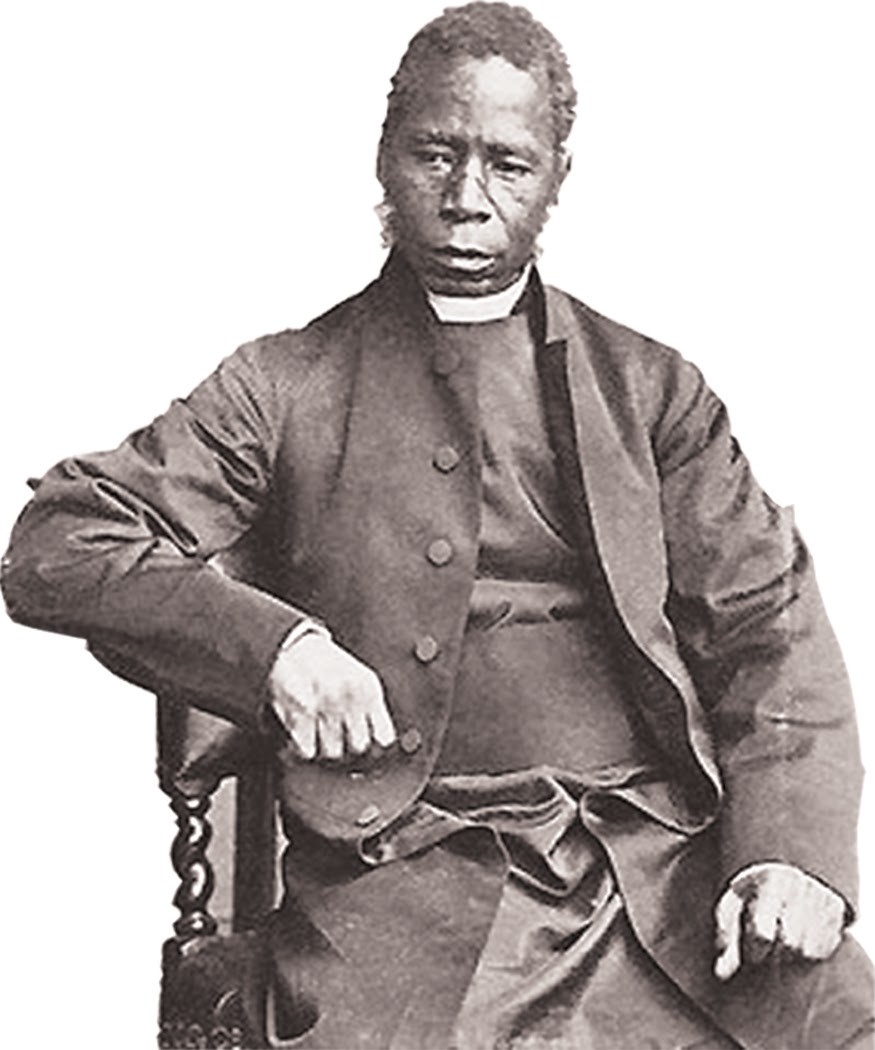By Samuel Ajayi Crowther
Letter of Mr. Samuel Crowther (Later Bishop Samuel Crowther) to the Rev. Williams Jowett, in 1837, then Secretary of the Church Missionary Society, detailing the circumstances connected with his being sold as a slave. Fourah Bay, Feb. 22, 1837
Rev. and dear Sir,
As I think it will be interesting to you to know something of the conduct of Providence in my being brought to this Colony, where I have the happiness to enjoy the privilege of the Gospel, I give you a short account of it, hoping I may be excused if I should prove rather tedious in some particulars.
I suppose sometimes about the commencement of the year 1821, I was in my native country, enjoying the comforts of father and mother, and affectionate love of brothers and sisters. From this period I must date the unhappy, but which I am now taught, in other respects, to call a blessed day, which I shall never forget in my life.
I call it an unhappy day because it was the day in which I was violently turned out of my father’s house, and separated from relations; and which I was made to experience what is called to be in slavery – about its being called blessed, it being the day which Providence had marked out for me to set out on my journey from the land of heathenism, superstition, and vice, to a place where His Gospel is preached.
War in Oyo
For some years, war had been carried on in my Eyo (Oyo) country, which was always attended with much devastation and bloodshed; the women, such men as had surrendered or were caught, with the children, were taken captives.
The enemies who carried on these wars were principally the Oyo Mahomendans, with whom my country abounds- with the Foulahs (Fulbe), and such foreign slaves as had escaped from their owners. Joined together, making a formidable force of about 20,000, who annoyed the whole country. They had no other employment but selling slaves to the Spaniards and Portuguese on the coast.
The morning in which my town, Ocho-gu (Osogun), shared the same fate that many others had experienced, was fair and delightful; and most of the inhabitants were engaged in their respective occupations. We were preparing breakfast without any apprehension; when about 9 o’clock a.m. a rumour was spread in the town that the enemies had approached with intentions of hostility.
It was not long after when they had almost surrounded the town, to prevent any escape of the inhabitants; the town being rudely fortified with a wooded fence, about four miles in circumference, containing about 12,000 inhabitants, which would produce 3,000 fighting men.
Also read: Esu and his sympathisers: In defense of Ajayi Crowther:https://churchtimesnigeria.net/esu-and-his-sympathisers-the-defence-of-bishop-ajayi-crowther/
The inhabitants not being duly prepared, some not being at home; those who were, having about six gates to defend, as well as many weak places about the fence to guard against, and, to say in a few words, the men being surprised, and therefore confounded – the enemies entered the town after about three or four hours’ resistance.
Here a most sorrowful scene imaginable was to be witnessed! – women, some with three, four, six children clinging to their arms, with the infant on their backs, and such baggage as they could carry on their heads, running as far as they could through prickly shrubs, which, hooking their blues and other loads, drew them down from the heads of the bearers. While they found it impossible to go along with their loads, they endeavoured only to save themselves and their children: even this was impracticable with those who had many children to care for.
Caught by the enemies
While they were endeavouring to disentangle themselves from the ropy shrubs, they were overtaken and caught by the enemies with a noose of rope thrown over the neck of every individual, to be led in the manner of goats tied together, under the drove of one man. In many cases a family was violently divided between three or four enemies, who each led his away, to see one another no more.
Your humble servant was thus caught with his mother, two sisters (one an infant about ten months old), and a cousin – while endeavouring to escape in the manner above described. My load consisted of nothing else than my bow, and five arrows in the quiver, the bow I had lost in the shrub, while I was extricating myself before I could think of making any use of it against my enemies. The last view I had of my father was when he came from the fight, to give us the signal to flee: he entered our house which was burnt some time back for some offense given by my father’s adopted son. Hence I never saw him more I must take thy leave, unhappy, comfortless father! – I learned, some time afterward, that he was killed in another battle.
Oyo Mohamendans
Pitiful sight
Before the chief Captor
Another captivity
Sold again
Fear of the Portuguese
Waiting for more slaves
Journey on the ocean
Chained with iron fetter
Captured on the river of Lagos
Now in Sierra Leone
Samuel Crowther
Source: A Patriot to The Core. Bishop Ajayi Crowther by Professor J. F. Ade-Ajayi


